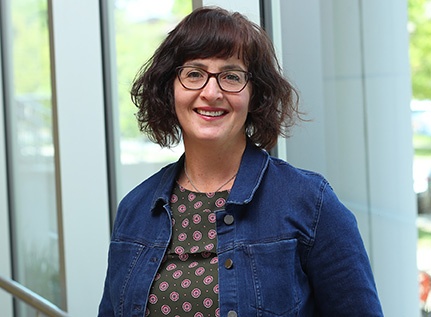
It’s messy and uncertain, and all of us will need to be ready for one thing - change. Fortunately as family members and carers who have supported young people struggling with mental health challenges, we have some skills that will come in handy now
Back-to-school never seems straight forward for a family or carer of a young person with mental health challenges. For some of our young people, a return to school means a positive return to routines, supportive learning environments, and maybe even access to services.
For other young people, the start of the school year – and maybe the whole school year - can create anxiety and stress, and as carers, we work hard to support our youth as they struggle.
Now in September amidst the COVID-19 pandemic, we are surrounded by families and students facing similar levels of uncertainty. School communities are collectively grappling with how to maximize the many benefits of having kids in school, while keeping students safe and engaged. It’s not clear that students will be able to manage well with public health protocols in schools.
These are amongst our usual challenges but the current COVID-19 educational response was not built for our kids. There are lots of challenges - how will school accommodations be implemented? How can students safely access specialist supports if specialists are rotating? More importantly, how will our children cope in an increasingly stressed environment?
It’s messy and uncertain, and all of us will need to be ready for one thing - change. Fortunately as family members and carers who have supported young people struggling with mental health challenges, we have some skills that will come in handy now:
- We are used to doing things differently: we have often already rewritten what adolescence, parenting and family life looks like. We try not to worry about what other families are doing or how people think we should manage (aside from trusted friends and professionals). We also know to ask for help when we need it.
- We know how to focus on what is most important: We focus on our young people and their wellbeing. Then we focus on the rest of the family. Every once in awhile, we may be able to focus on ourselves.
- We measure success differently: As parents, we learn quickly that life is not a straightforward or predictable path. We celebrate the little things, the steps along the way, and the end result.
In my own family, our September 2020 story has just begun in Nova Scotia. It’s definitely not straightforward, but as parents with 14 years in public education, we feel very relaxed relative to others around us. We have built up structures and traditions around our family that help. At the same time, I am still spending these days emailing schools and teachers and tutors, trying to line it all up.
On day one, we worked with our daughter’s school so that she would not get into trouble for taking a mask break and be removed from class. However, her mask strategy includes breaks in separate offices during instructional time so she is still experiencing classroom exclusion due to anxiety and other challenges.
Our son attends the adult high school in the Halifax region. In June, we found out the school was moving, and then in August we found out the new space was not ready and would not be ready until November. Even during a global pandemic, you can still be surprised. Fortunately, as parents of a young person with mental illness, we have access to all of the attributes above. We are supporting our son’s ongoing learning by expanding his bike repair business, we are focused on his continued well-being (what matters), and we will measure success by how he manages this new reality within a new reality, demonstrating his own growth and resilience.
We are exhausted, like every September. But we have made strategies and plans with our family and children and we will take it one day at a time.
We welcome relevant and respectful comments. Off-topic comments and spam will be removed.